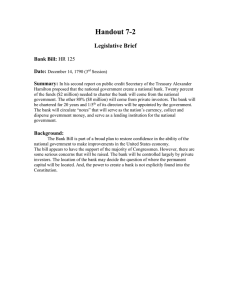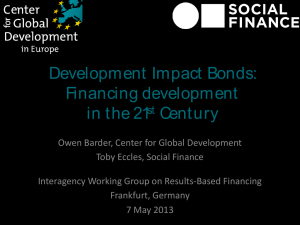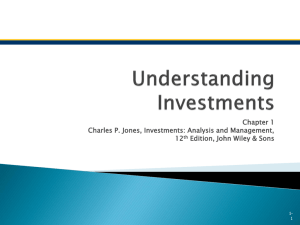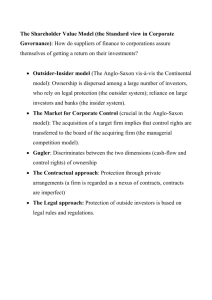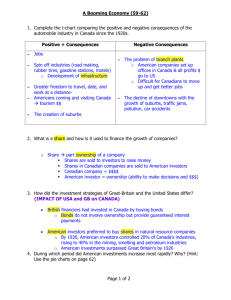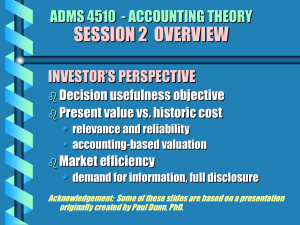DECISION USEFULNESS – INVESTOR'S PERSPECTIVE
advertisement
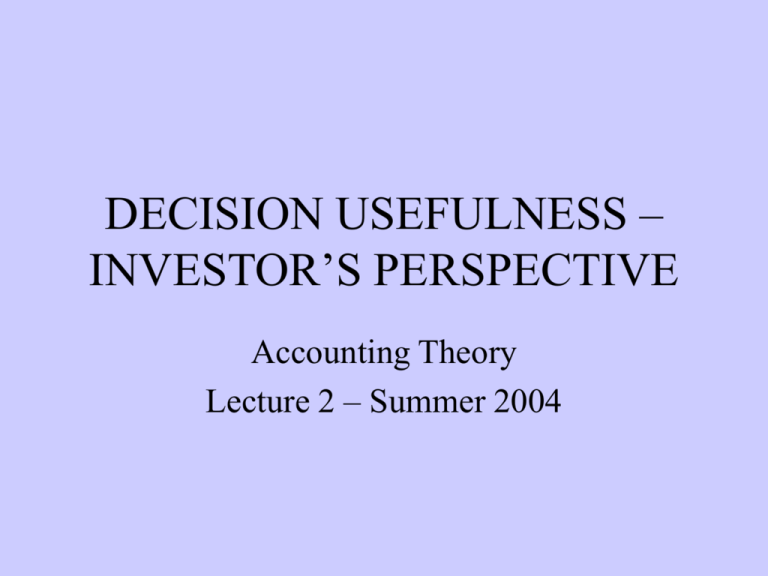
DECISION USEFULNESS – INVESTOR’S PERSPECTIVE Accounting Theory Lecture 2 – Summer 2004 Decision Usefulness Investors make investment decisions – how much, when to invest, how long Need information to estimate probable returns – choose among alternative investments Financial information helps investors – assess likelihood of future returns, cash flows, dividends Investors Rational – want a reasonable return Risk averse => diversify portfolio – portfolio risk versus systematic risk Financial information should help reduce portfolio risk by estimating probabilities of future returns Investors & Cash Flows (Ch 2) Value of the firm is PV of future dividends – function of the firm’s cash flows & interest rate Ideal conditions – cash flows & interest rate are known with certainty Dividend policy is irrelevant – value of the firm is known with certainty Present Value Present value financial statements • Reliable – precise & free from bias • Relevant – useful for predicting future cash-flows – for predicting if good news or bad news will persist into future periods Is Historic Cost Useful? Historic cost is reliable – assets & liabilities are measured at cost (= PV) May not be relevant – as market changes, cost may not equal PV Accountants trade-off relevance for reliability – amortization – lower of cost & market Efficient Markets (Ch 4) Prices fully reflect all publicly available information (semi-strong) Prices need not reflect underlying value – poor quality, not enough, misinterpreted Decision makers constantly revise their predictions as new information is received Financial reporting improves quantity & quality of public information Inconsistency Prices reflect all publicly available info But, information acquisition is costly Cannot beat the market if prices reflect all information Therefore, no motivation to collect new info Result => share prices self-destruct Market Inefficiencies Why don’t markets behave efficiently? • Prospect theory – high (low) payoffs are over (under) weighted • Post-announcement drift – investors don’t fully digest good/bad news • Earnings fixation – focus on EPS & ignore its components Continuous Demand Random elements in all markets – trades not based on rational evaluation of info Over time, on average, prices are efficient At any point, prices can be over/under valued Result => continuous search for private info Note: there is no clear line between public & private information Adverse Selection Sometimes it’s difficult to distinguish public from private information Insiders can take advantage of the market using their private information Problem reduced: – penalties, fines for insider trading – full disclosure, but reporting is costly Decision Usefulness Provide information useful in making investing & credit decisions Reflect expectations about the future – often based on evaluation of the past Financial reporting: – focus on earnings & its components – does not directly measure value – provides information to estimate value Implications Accounting policies don’t matter, unless they have a direct affect on cash-flows Don’t worry about the naïve investors Markets are interested in all relevant information, not just accounting information Disclose as much as is feasible

